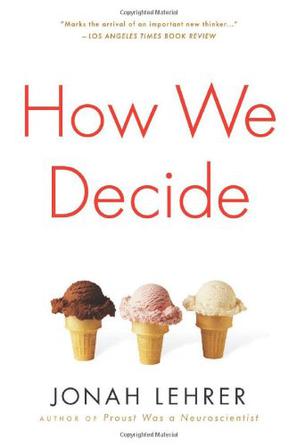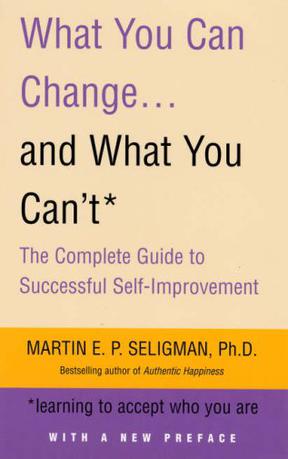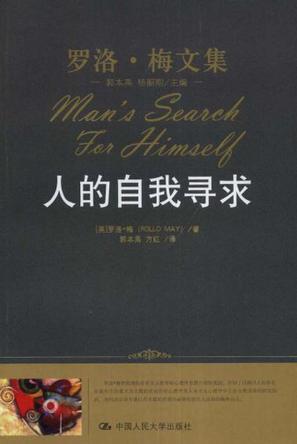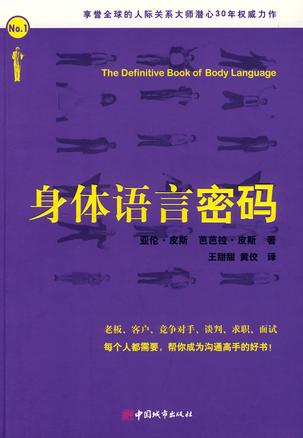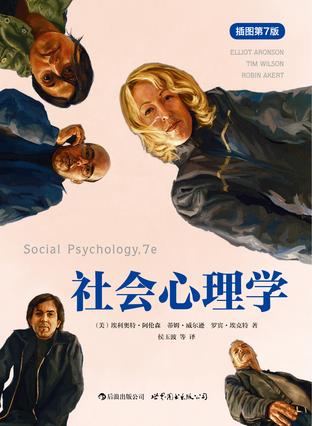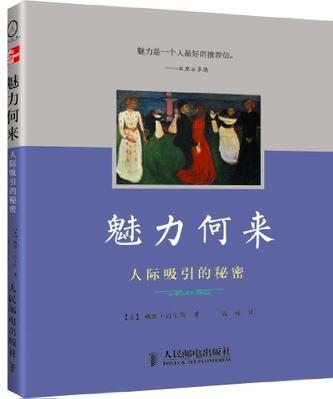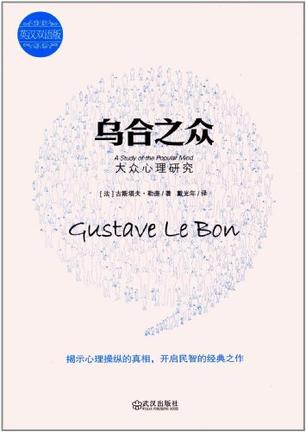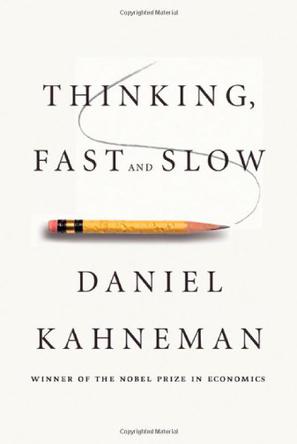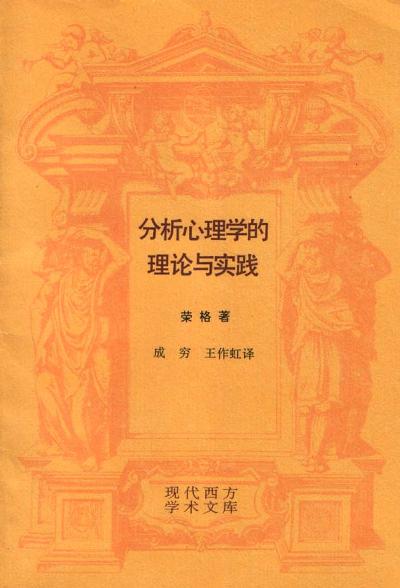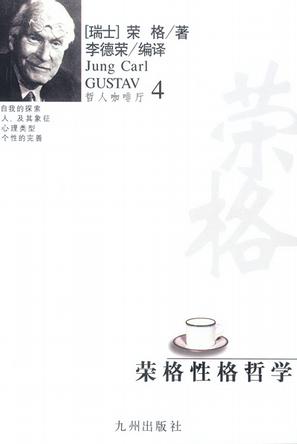欢迎来到相识电子书!
标签:心理
-
寻找弗洛伊德
寻找佛洛伊德:精神分析理论与经典案例,ISBN:9787030232489,作者:(韩)李武石 著,李光哲,李东根,杨华瑜 译 -
How We Decide
Product Description The first book to use the unexpected discoveries of neuroscience to help us make the best decisions. Since Plato, philosophers have described the decision-making process as either rational or emotional: we carefully deliberate, or we blink and go with our gut. But as scientists break open the mind's black box with the latest tools of neuroscience, they re discovering that this is not how the mind works. Our best decisions are a finely tuned blend of both feeling and reason and the precise mix depends on the situation. When buying a house, for example, it s best to let our unconscious mull over the many variables. But when we re picking a stock, intuition often leads us astray. The trick is to determine when to use the different parts of the brain, and to do this, we need to think harder (and smarter) about how we think. Jonah Lehrer arms us with the tools we need, drawing on cutting-edge research as well as the real-world experiences of a wide range of deciders from airplane pilots and hedge fund investors to serial killers and poker players. Lehrer shows how people are taking advantage of the new science to make better television shows, win more football games, and improve military intelligence. His goal is to answer two questions that are of interest to just about anyone, from CEOs to firefighters: How does the human mind make decisions? And how can we make those decisions better? -
发展心理学
《发展心理学》是发展心理学课程的教材,其主要任务是从生命全程的角度阐述个体心理发生发展的规律及毕生心理发展的年龄特征,从而使学生全面、深入地理解个体心理发展的遗传与环境、普遍性与特殊性等基本理论问题.树立起关于生命全程的辩证发展观。在结构上,《发展心理学》首先论述了发展心理学的研究内容、发展历史、主要理论、研究方法等基本问题,然后分别阐述了胎儿、婴儿、幼儿、小学儿童、青少年、成年早期个体、成年中期个体、成年晚期个体的心理发展特点和规律。在内容上,《发展心理学》既反映了世界当代发展心理学研究的新进展、新趋势,又反映了我国心理学工作者在发展心理学领域的研究成果。《发展心理学》主要供高等院校心理学、教育学等专业的学生使用,也可供广大心理学工作者和教育工作者学习、参考。 -
What You Can Change and What You Can't
Psychologist Seligman ( Learned Optimism ) here examines common psychological disorders according to their biological and societal, or learned, components. Most enlightening are his analyses of the effectiveness of relaxation, meditation, psychoanalysis and cognitive therapies in the treatment of anxiety, which, along with depression and anger, he claims, can largely be controlled by disciplined effort. Tables demonstrating the success rates of various approaches to given problems, evaluative questionnaires and mostly jargon-free prose complement Seligman's comprehensive, unformulaic discussion. Maintaining that dieting will not help people who are overweight ("Weight is in large part genetic"), the author urges a focus on fitness and health; asserting that a child's psyche heals faster than an adult's, he observes that childhood trauma does not necessarily shape one's adult life: "the rest of the tapestry is not determined by what has been woven before." Direct, instructive and nonreductive, Seligman's observations and theories are positive, realistic and sound. -
人的自我寻求
《人的自我寻求》的主题是关于个体人格如何在孤独的时代得以重建。《人的自我寻求》从分析人的空虚、孤独与焦虑入手,解释现代人面临的严重心理困境,并进一步指出,造成这一混乱的根源是价值核心的丧失、自我感的丧失、语言的丧失和悲剧感的丧失等社会历史和文化心理的因素。然后通过强调自我意识是人不同于动物的独特标志;力图论证它是人的自由赖以存在的基础。最后试图通过对自由、良心、勇气等传统价值作新的阐释而重新确立人格整合的目标。 点击链接进入英文版: Man's Search for Himself -
LIAR.GAMEⅠ
女主角是个诚实善良的女大学生,一天突然收到一封奇怪的邀请涵和1亿日圆,让她参加LIAR GAME。规则大概如下:她将与另一个手持一亿日圆的人成为对手,以30天为期限,双方可以用任何办法从对方手上把钱骗来或(搞来),30天后游戏举办方将来向两人各收回一亿圆,也就是说游戏最高奖金是1亿,最高罚金也是一亿。 女主角不幸被人骗掉一亿,万般无奈只好向天才诈骗师秋山深一求助。秋山曾对一个巨型诈骗公司进行反诈骗的天才诈骗师。 故事就此开始…… -
情绪的解析
你兢兢业业却总不能升职,你是忍气吞声还是据理力争或者干脆炒老板鱿鱼?一时冲动和爱人吵架,你能不能先冷静下来,还是各不相让以致感情破裂?你苦口婆心,可孩子就是不听话,你能否保持心平气和,还是暴跳如雷,甚至拳脚相加?有什么样的情绪反应,就有什么样的生活!正确调节自己的情绪,并理解他人的情绪,可以让生活顺风顺水;错误表达自己的情绪,忽视甚至误解他人的情绪,就可能招致不可估量的损失。 保罗·艾克曼是享誉全球的著名心理学家、全球首席识谎专家,专精于非语言沟通。美国联邦调查局、中央情报局、警方、反恐小组等政府机构,以及皮克斯动画公司,常常请他当表情顾问。40年来,他系统研究新几内亚土著、精神分裂症患者、间谍、连续杀人犯和职业杀手的面容,《情绪的解析》就是他集大成的突破性研究成果。本书科学地解析了产生情绪时体内的生理变化、外在的肢体语言、声音、面部表情等方面,并提供小测试和练习,考察你对情绪的了解,帮你认清自己和他人最细微的情绪表现,提高你对情绪发生的敏感度。 我们的生活中不能没有情绪,我们要在情绪的世界里生活得更好! -
身体语言密码
《身体语言密码》是享誉全球的英国人际关系大师亚伦•皮斯潜心30年权威力作。编者们通过查阅资料和整理分析,尽最大的努力将生活中常见的、重要的肢体语言展现给读者,并对肢体语言的动作、面部表情、眼神传递,头部、肩部、手部、腿部、脚部以及坐、立、走姿和一些动作的含义,各种动作的组合,以及彼此间的交流方式做了一系列的介绍。《身体语言密码》带你走进人类潜意识深处,解析人类最神秘的身体信号,开启无声世界最复杂的信息密码,教授比说话更有效的沟通技巧。 点击链接进入英文版: The Definitive Book of Body Language -
你怎样世界就怎样
我的诊疗室里,开始接待越来越多的心理病人——他们焦虑、迷茫,甚至生不如死…… 药物只能让人的神经暂时放松,但如果他们一直深陷在自己的悲观情绪里,终将会与幸福擦肩而过。 人活着,不能只活在自己的世界里,不能只关注自己的感受和希望;人活着,要学会扮演自己的每一个角色,要敢于改变自己——毕竟,世界的样子就摆在那里,不会因了你而改变…… -
自卑与超越
《自卑与超越(最新经典完整译本)》是人类心理学先驱阿弗雷德•阿德勒的巅峰著作,全书立足于个体心理学观点,从教育、家庭、婚姻、伦理、社交等多个领域,以大量的实例为论述基础,阐明了人生道路的方向和人生意义的真谛,帮助人们正确面对缺陷,正确对待职业,正确理解社会,理解生活,理解性。具有极深的哲理性和巨大的学术价值。 《自卑与超越(最新经典完整译本)》语言朴实,译文精练、流畅,结构严谨,不仅不仅对心理专业人士具有借鉴作用,对普通读者也具有积极的指导意义,是值得拥有的一部心理学经典作品。
-
社会心理学(插图第7版)
本书是美国优秀的社会心理学教材,三位编写者在专业研究领域都有卓绝的成就,并且都在教学第一线有超过20年的教学经验,被耶鲁大学、哈佛大学等美国700多所大学采用作为教材。 本书作者们将多年的教学经验和研究成果融为一炉,内容全面完整、系统连贯,涵盖了社会心理学的基本问题和研究方法,以及个体对社会和自我的认知、个体态度和从众行为、团体过程和人际吸引、亲社会行为和攻击行为等社会心理与行为特征,反映了在环境、健康、法律等领域中社会心理学的应用价值。 本书最大的特色是从解决现实问题的角度出发开展研究,从人们身边发生的事情阐发深奥的理论,使读者不仅能够领略一门学问严谨科学的魅力,同时也深深浸润在希望以科学使世界更美好的人文关怀之中。 -
魅力何来
《魅力何来:人际吸引的秘密》内容简介:我们每时每刻都在不知不觉中被他人吸引,同时也在吸引着他人。作为“社会性动物”,我们有着强烈的与他人建立亲密关系的归属需要,而人际吸引正是亲密关系得以建立的前提。那么,这种看不见、摸不着的魅力来自于何处呢?也许,我们每个人都有自己的一套理论,但心理学中对此已经有了完整而科学的阐述。 《魅力何来:人际吸引的秘密》摘编自美国著名心理学家戴维•迈尔斯的超级畅销书《社会心理学》,这本在国外大学的心理学学生中几乎人手一册、同时国内大学心理学系采用率最高的书,集合了当今与我们的生活最为贴近的社会心理学中最优秀的成果。我们节选了其中关于吸引力和亲密关系的一部分,配以大量插图,并且修改了原书中过于学术性的语句,以通俗易懂的语言揭示了吸引力产生的四个要素,即现实空间上的接近性、外表、相似性和被喜欢的感觉,介绍了我们应当如何发展、维持和促进与朋友、亲人和爱人的亲密关系。 《魅力何来:人际吸引的秘密》不仅具有坚实的理论背景,而且由于其贴近生活,还有很强的实践价值。每一个希望提升自己的吸引力、渴望建立和维持长久的友情和爱情的人都能从中获益良多。 -
乌合之众
《乌合之众:大众心理研究(英汉双语版)》颠覆了人们通常对群体的认识,对群体的特点剖析得淋漓尽致,层层分析,逐步推进,明确指出个人一旦融入群体,他的个性便会被湮没,群体的思想便会占据绝对的统治地位;与此同时,群体的行为也会表现出排斥异议,极端化、情绪化及低智商化等特点,进而对社会产生破坏性的影响。 《乌合之众:大众心理研究(英汉双语版)》为英汉双语参照,英语得外文语言表述的精妙,中文则生动有致,在牢牢扣住原意的情况下,以最精炼流畅的语言将《乌合之众:大众心理研究(英汉双语版)》的精髓凸显出来。为了让《乌合之众:大众心理研究(英汉双语版)》读来更简单明了,更符合中国读者的习惯,在编排时,并不是对照英文逐句翻译,而是大致相应,各有变化,从而使其相对参照、相得益彰。《乌合之众:大众心理研究(英汉双语版)》是社会心理学领域中最具影响力的著作,他对群体性格特征的预测在后世都得到了很好的印证,是一本值得每个人研读、思考的好书。 温馨提示:此书是双语对照的,前半部分是简体中文,后半部分是全英文,请客户知悉。 -
健全的社会
《健全的社会》是社会心理学领域的经典之作,是对现代社会中人的精神状况的一次有力的探索。 精神健康的问题是否只涉及某些“不适应”社会的个体?社会作为整体是否会患上精神病?对此,弗洛姆给出了肯定的回答。现代社会使人们与自己创造的事物、自己建立的组织、其他人,甚至自己疏离开来。现代资本主义造就了“可支配的人格”。对这种趋势放任自流的结果将是为异化力量所支配的精神失常的社会。在深入分析了资本主义和共产主义的各种社会组织方案后,弗洛姆提出了第三种方案:在理想的社会中,个人不再是达成其他人的目的的手段,个人的幸福是社会的核心关注点,社会的经济增长不应凌驾于个人的发展之上;在精神健全的社会中,个人应当富有创造力和责任感。 作为人本主义精神分析学派的代表人物,弗洛姆对于人和社会的关系的看法与传统的弗洛伊德派的观点有根本的区别。后者将性欲视做人的感情和欲望的基本动力。对此,弗洛姆明确提出:人的基本感情并不植根于他的本能需要,而是产生自人类生存的特殊环境。从中我们可以窥见马克思的人本主义学说的影响。 -
Thinking, Fast and Slow
Major New York Times bestseller Winner of the National Academy of Sciences Best Book Award in 2012 Selected by the New York Times Book Review as one of the best books of 2011 A Globe and Mail Best Books of the Year 2011 Title One of The Economist’s 2011 Books of the Year One of The Wall Street Journal's Best Nonfiction Books of the Year 2011 In the international bestseller, Thinking, Fast and Slow, Daniel Kahneman, the renowned psychologist and winner of the Nobel Prize in Economics, takes us on a groundbreaking tour of the mind and explains the two systems that drive the way we think. System 1 is fast, intuitive, and emotional; System 2 is slower, more deliberative, and more logical. The impact of overconfidence on corporate strategies, the difficulties of predicting what will make us happy in the future, the profound effect of cognitive biases on everything from playing the stock market to planning our next vacation—each of these can be understood only by knowing how the two systems shape our judgments and decisions. Engaging the reader in a lively conversation about how we think, Kahneman reveals where we can and cannot trust our intuitions and how we can tap into the benefits of slow thinking. He offers practical and enlightening insights into how choices are made in both our business and our personal lives—and how we can use different techniques to guard against the mental glitches that often get us into trouble. Winner of the National Academy of Sciences Best Book Award and the Los Angeles Times Book Prize and selected by The New York Times Book Review as one of the ten best books of 2011, Thinking, Fast and Slow is destined to be a classic. One of the New York Times Book Review's Top 10 Books of 2011 Editorial Reviews Amazon.com Review Amazon Best Books of the Month, November 2011: Drawing on decades of research in psychology that resulted in a Nobel Prize in Economic Sciences, Daniel Kahneman takes readers on an exploration of what influences thought example by example, sometimes with unlikely word pairs like "vomit and banana." System 1 and System 2, the fast and slow types of thinking, become characters that illustrate the psychology behind things we think we understand but really don't, such as intuition. Kahneman's transparent and careful treatment of his subject has the potential to change how we think, not just about thinking, but about how we live our lives. Thinking, Fast and Slow gives deep--and sometimes frightening--insight about what goes on inside our heads: the psychological basis for reactions, judgments, recognition, choices, conclusions, and much more. --JoVon Sotak Review “A tour de force. . . Kahneman’s book is a must read for anyone interested in either human behavior or investing. He clearly shows that while we like to think of ourselves as rational in our decision making, the truth is we are subject to many biases. At least being aware of them will give you a better chance of avoiding them, or at least making fewer of them.”—Larry Swedroe, CBS News “Daniel Kahneman demonstrates forcefully in his new book, Thinking, Fast and Slow, how easy it is for humans to swerve away from rationality.”—Christopher Shea, The Washington Post “An outstanding book, distinguished by beauty and clarity of detail, precision of presentation and gentleness of manner. Its truths are open to all those whose System 2 is not completely defunct. I have hardly touched on its richness.”— Galen Strawson, The Guardian “Brilliant . . . It is impossible to exaggerate the importance of Daniel Kahneman’s contribution to the understanding of the way we think and choose. He stands among the giants, a weaver of the threads of Charles Darwin, Adam Smith and Sigmund Freud. Arguably the most important psychologist in history, Kahneman has reshaped cognitive psychology, the analysis of rationality and reason, the understanding of risk and the study of happiness and well-being . . . A magisterial work, stunning in its ambition, infused with knowledge, laced with wisdom, informed by modesty and deeply humane. If you can read only one book this year, read this one.”— Janice Gross Stein, The Globe and Mail “A sweeping, compelling tale of just how easily our brains are bamboozled, bringing in both his own research and that of numerous psychologists, economists, and other experts...Kahneman has a remarkable ability to take decades worth of research and distill from it what would be important and interesting for a lay audience...Thinking, Fast and Slow is an immensely important book. Many science books are uneven, with a useful or interesting chapter too often followed by a dull one. Not so here. With rare exceptions, the entire span of this weighty book is fascinating and applicable to day-to-day life. Everyone should read Thinking, Fast and Slow.” —Jesse Singal, Boston Globe “We must be grateful to Kahneman for giving us in this book a joyful understanding of the practical side of our personalities.” —Freeman Dyson, The New York Review of Books “Brilliant . . . It is impossible to exaggerate the importance of Daniel Kahneman’s contribution to the understanding of the way we think and choose. He stands among the giants, a weaver of the threads of Charles Darwin, Adam Smith and Sigmund Freud. Arguably the most important psychologist in history, Kahneman has reshaped cognitive psychology, the analysis of rationality and reason, the understanding of risk and the study of happiness and well-being . . . A magisterial work, stunning in its ambition, infused with knowledge, laced with wisdom, informed by modesty and deeply humane. If you can read only one book this year, read this one.” — Janice Gross Stein, The Globe and Mail “It is an astonishingly rich book: lucid, profound, full of intellectual surprises and self-help value. It is consistently entertaining and frequently touching, especially when Kahneman is recounting his collaboration with Tversky . . . So impressive is its vision of flawed human reason that the New York Times columnist David Brooks recently declared that Kahneman and Tversky’s work ‘will be remembered hundreds of years from now,’ and that it is ‘a crucial pivot point in the way we see ourselves.’ They are, Brooks said, ‘like the Lewis and Clark of the mind’ . . . By the time I got to the end of Thinking, Fast and Slow, my skeptical frown had long since given way to a grin of intellectual satisfaction. Appraising the book by the peak-end rule, I overconfidently urge everyone to buy and read it. But for those who are merely interested in Kahenman’s takeaway on the Malcolm Gladwell question it is this: If you've had 10,000 hours of training in a predictable, rapid-feedback environment—chess, firefighting, anesthesiology—then blink. In all other cases, think.”—The New York Times Book Review “Ask around and you hear pretty much the same thing. 'Kahneman is the most influential psychologist since Sigmund Freud,' says Christopher Chabris, a professor of psychology at Union College, in New York. 'No one else has had such a broad impact on so many fields' . . . It now seems inevitable that Kahneman, who made his reputation by ignoring or defying conventional wisdom, is about to be anointed the intellectual guru of our economically irrational times.”— Evan R. Goldstein, The Chronicle of Higher Education “There have been many good books on human rationality and irrationality, but only one masterpiece. That masterpiece is Daniel Kahneman’s Thinking, Fast and Slow . . . This is one of the greatest and most engaging collections of insights into the human mind I have read.”—William Easterly, Financial Times “[Thinking, Fast and Slow] is wonderful, of course. To anyone with the slightest interest in the workings of his own mind, it is so rich and fascinating that any summary would seem absurd.”— Michael Lewis, Vanity Fair “Absorbingly articulate and infinitely intelligent . . . What's most enjoyable and compelling about Thinking, Fast and Slow is that it's so utterly, refreshingly anti-Gladwellian. There is nothing pop about Kahneman's psychology, no formulaic story arc, no beating you over the head with an artificial, buzzword-encrusted Big Idea. It's just the wisdom that comes from five decades of honest, rigorous scientific work, delivered humbly yet brilliantly, in a way that will forever change the way you think about thinking.”—Maria Popova, The Atlantic “I will never think about thinking quite the same. [Thinking, Fast and Slow] is a monumental achievement.”—Roger Lowenstein, Bloomberg/Businessweek “Profound . . . As Copernicus removed the Earth from the centre of the universe and Darwin knocked humans off their biological perch, Mr. Kahneman has shown that we are not the paragons of reason we assume ourselves to be.” —The Economist “[Kahneman’s] disarmingly simple experiments have profoundly changed the way that we think about thinking . . . We like to see ourselves as a Promethean species, uniquely endowed with the gift of reason. But Mr. Kahneman’s simple experiments reveal a very different mind, stuffed full of habits that, in most situations, lead us astray.” —Jonah Lehrer, The Wall Street Journal “[A] tour de force of psychological insight, research explication and compelling narrative that brings together in one volume the high points of Mr. Kahneman's notable contributions, over five decades, to the study of human judgment, decision-making and choice . . . Thanks to the elegance and force of his ideas, and the robustness of the evidence he offers for them, he has helped us to a new understanding of our divided minds—and our whole selves.” —Christoper F. Chabris, The Wall Street Journal “The ramifications of Kahenman’s work are wide, extending into education, business, marketing, politics . . . and even happiness research. Call his field “psychonomics,” the hidden reasoning behind our choices. Thinking, Fast and Slow is essential reading for anyone with a mind.” —Kyle Smith, The New York Post “A major intellectual event . . . The work of Kahneman and Tversky was a crucial pivot point in the way we see ourselves.” —David Brooks, The New York Times “Kahneman provides a detailed, yet accessible, description of the psychological mechanisms involved in making decisions.” —Jacek Debiec, Nature “With Kahneman’s expert help, readers may understand this mix of psychology and economics better than most accountants, therapists, or elected representatives. VERDICT A stellar accomplishment, a book for everyone who likes to think and wants to do it better.” —Library Journal “The mind is a hilariously muddled compromise between incompatible modes of thought in this fascinating treatise by a giant in the field of decision research. Nobel-winning psychologist Kahneman (Attention and Effort) posits a brain governed by two clashing decision-making processes. The largely unconscious System 1, he contends, makes intuitive snap judgments based on emotion, memory, and hard-wired rules of thumb; the painfully conscious System 2 laboriously checks the facts and does the math, but is so "lazy" and distractible that it usually defers to System 1. Kahneman uses this scheme to frame a scintillating discussion of his findings in cognitive psychology and behavioral economics, and of the ingenious experiments that tease out the irrational, self-contradictory logics that underlie our choices. We learn why we mistake statistical noise for cohere... -
少女杜拉的故事
临床、天才和文学想像的完美结合 本书是作者丰富严谨的临床实践和天才神奇的文学想象的完美结合,它既是一个充满科学专业色彩的病变心理学报告,又是一个耐人寻味、引人入胜且写法新颖的文学故事。作者本人也因其高深的文学造诣和理论文笔的优美流畅,曾获得“歌德文学奖”。 120幅艺术杰作 120幅艺术杰作。精选西方历代,尤其是现代绘画的精品名作,探寻弗洛伊德精神的根源及其对西方文艺产生的巨大影响。 图文互补,拓展阅读空间 精当的图解文字,天衣无缝地将图片和原作文字联为一体,图文互补,拓展阅读的想像空间。 -
分析心理学的理论与实践
已故的C.G.荣格教授,在1935年——也就是他满六十岁的时候,在伦敦的塔维斯托克(Taristock)诊所给大约两百名医生作了一个系列讲座,一共连续五个晚上。这个讲座及其讨论曾由玛丽·巴克和玛格丽·格姆打印成册,现在编成本书正式出版。 荣格的著作是广为人知的,但亲自听到他讲演的人并不多。被他的系列讲座所吸引的,不仅有各个流派的具有代表性的精神病学家和精神治疗学家,还有精神病医院的人员和大量普通开业医生。他的习惯是先讲一个小时,然后用一个小时来进行与听众的讨论。从讲座一开始,他的新颖材料、随和的态度、流畅圆熟的英语表述,就创造了一种轻松而又激励人心的气氛,讨论大大超过原先预定的时间。荣格教授不仅具有演说家的魅力,还精于选词用字,准确地表达出他的意思,他的话清晰易懂,完全没有行话或学究腔。 荣格教授主要阐述的那些原理,也是他的独特的理论贡献。他将这些原理归在两个大的范畴之内,即:心灵的结构和内容;对心灵进行探索时所采用的方法。 他把意识界定为精神与自我之间的关系,认为其性质取决于个体的总的态度类型,无论是外倾型还是内倾型。他认为,意识与外部世界的关系是通过如下四种功能来实现的:思维、情感、感觉、直觉。由于作为童识焦点的自我来自于无意识,只有假设存在着个人的和集体的无意识,才能理解童识及其功能。关于这一假说和功能的所指,人们提出了很多问题,荣格清楚地解释了他所使用的这些术语的意义。他自己就把相当多的这类术语引进了分析心理学。 在解释他调查无意识的心灵活动所运用的方法时,荣格详细说明了语词联想测试法、析梦法、主动想象法。有些人对他如此强调语词联想测试法感到吃惊,因为此法早已为人们所摒弃。荣格提到这一方法,因为它在他的早期研究中占有关键的位置。荣格年轻时曾在苏黎士的一家名为伯尔各斯利医院里作过助理医生,他那时就着手研究大脑病变的秘密,当时,系统的心理学知识还没有问世。他对语词联想测试所作的实验,取得了出乎意料的、极有意义的结果。其中最有价值的,就是发现了无意识的自主性质。好几十年来早有人断定存在着意识之外的心灵活动,只是弗洛伊德和荣格才看到了它的临床运用。荣格通过对语词联想测试法的深入精细的研究,肯定了他的假说。他指出,的确存在着受情感左右的情结,这就为弗洛伊德关于压抑的理论提供了证据。起初,在语词联想测试中,给出的刺激(语词)只引起对一个词的反应,荣格感到这大大限制了此法的价值,于是作了技术上的改动。测试还是以原先的形式即记录反应时间的方式进行,但与此同时用各种装置分别以图表法记录下受试者情绪对他的脉搏和呼吸的影响,并测量出皮肤导电性的大小变化。荣格注意到身体和心灵在发挥功能时是不可分割的一个整体,他是第一个认识到伴随体,他是第一个认识到伴随情绪而产生的心理现象的临床医生。这就是现在我们熟知并称为精神生理现象的东西。 荣格还涉足梦的领域。他讲到了梦所包含的个人的和集体的因素,特别提到了析梦法,那是他采用的主要治疗手段。他有一次竟用一句德语来回答一个很复杂的问题,说“梦把一切必要的东西都显示出来了!”他的提问者不禁咋舌。大会主席提醒他应该用英语,他才笑了笑,说,“你们瞧,这不证明无意识的确不受支配而自行表现吗?”我很清楚记得这一插曲,尽管在讲座记录中没有记载下来。 -
姜汤说女人
《姜汤说女人》是一本配有原创漫画的全彩图书,细说现代女性的情感话题,包括女人的孤独、性爱、艳遇、痛苦、感觉……内容和形式极具现代感。 姜汤这个人是一个十足疯狂的掠夺者!他不仅掠夺了女人的心、肝、肺等五脏六腑,还掠夺了她们的精神和灵魂!总之,除了女人的肉体,他什么都要!但是,对于这些宝贵的“战利品”,他却不是独自占有,而是拿出来与世人分享!这种无私的掠夺者,或许是二十一世纪最受欢迎,尤其是受女性欢迎的掠夺者吧! -
荣格性格哲学
荣格毕生致力于分析心理及性格学的研究,其博大精深的思想赢得无数人的崇拜,中国的读者对他并不陌生。《荣格性格哲学》对荣格的哲学理论,做了较全面的评述和介绍,并着重解说了各种性格(心理)类型及其形成的过程和完善措施;力求使读者在面对自己面对人生时,从荣格的性格哲学中获得一个经典而科学的理性观照。 -
怒气与攻击
您是怎样排遣您的怒气的?您是否把您的怒气发泄到别人身上��人人都可恨,惟独您自己没有过错?您是否经常成为别人发泄怒气的对象?您是怎样解释使您生气的事情的? 倘若有人说了使您不高兴甚至伤害您的话,从而使气氛变得很紧张,您是怎样处理的? 压抑生气的情绪并不可取,可以尝试利用生气的想像,发泄出郁积于心头的不快,从而调节你的自我价值。 如何用建设性的态度来处理怒气,避免攻击和伤害他人;如何在自我保护和自我发展的同时,承认并尊重他人自我保存和发展的权利,这正是本书探讨的核心问题。
热门标签
下载排行榜
- 1 梦的解析:最佳译本
- 2 李鸿章全传
- 3 淡定的智慧
- 4 心理操控术
- 5 哈佛口才课
- 6 俗世奇人
- 7 日瓦戈医生
- 8 笑死你的逻辑学
- 9 历史老师没教过的历史
- 10 1分钟和陌生人成为朋友


